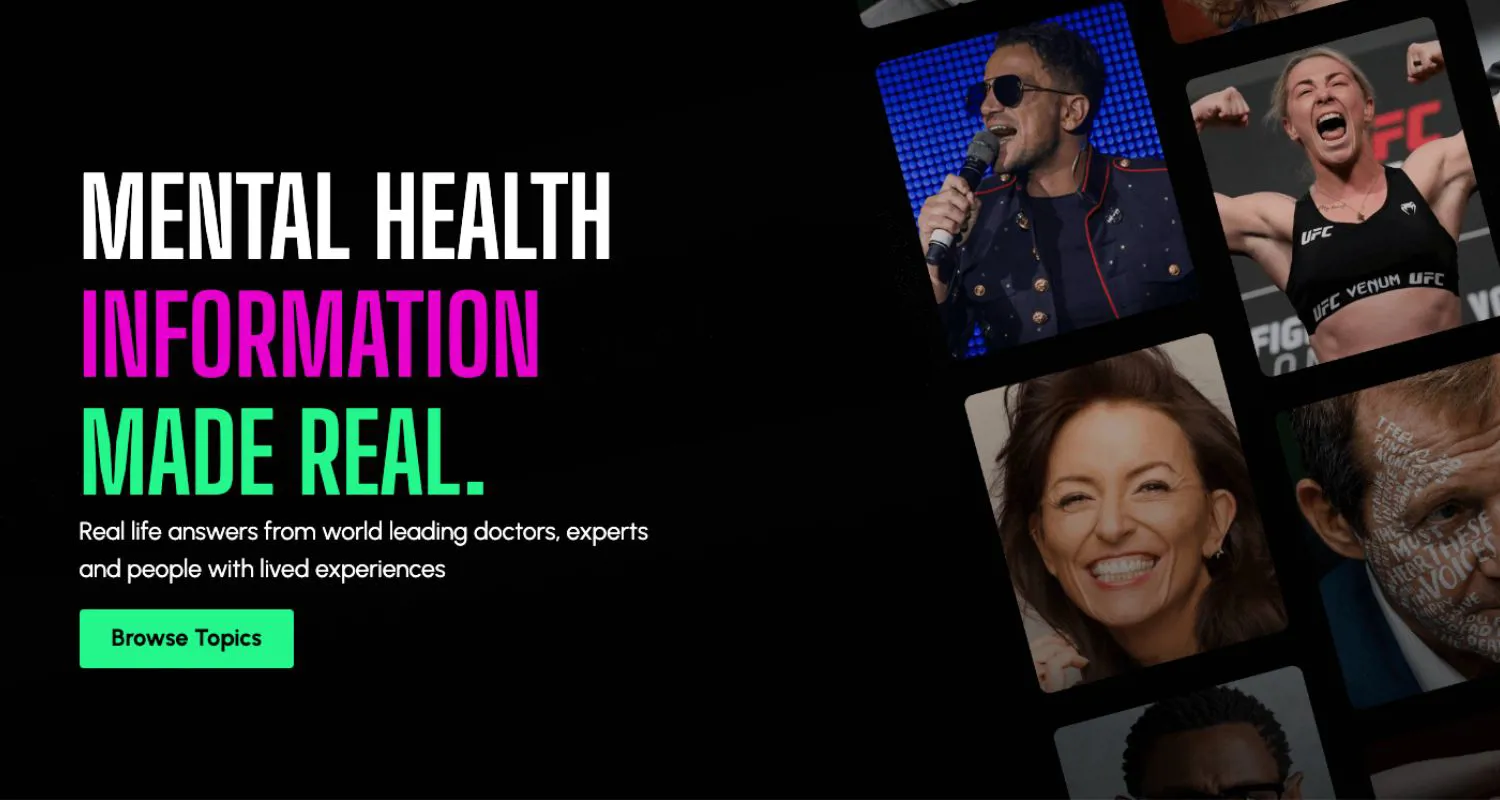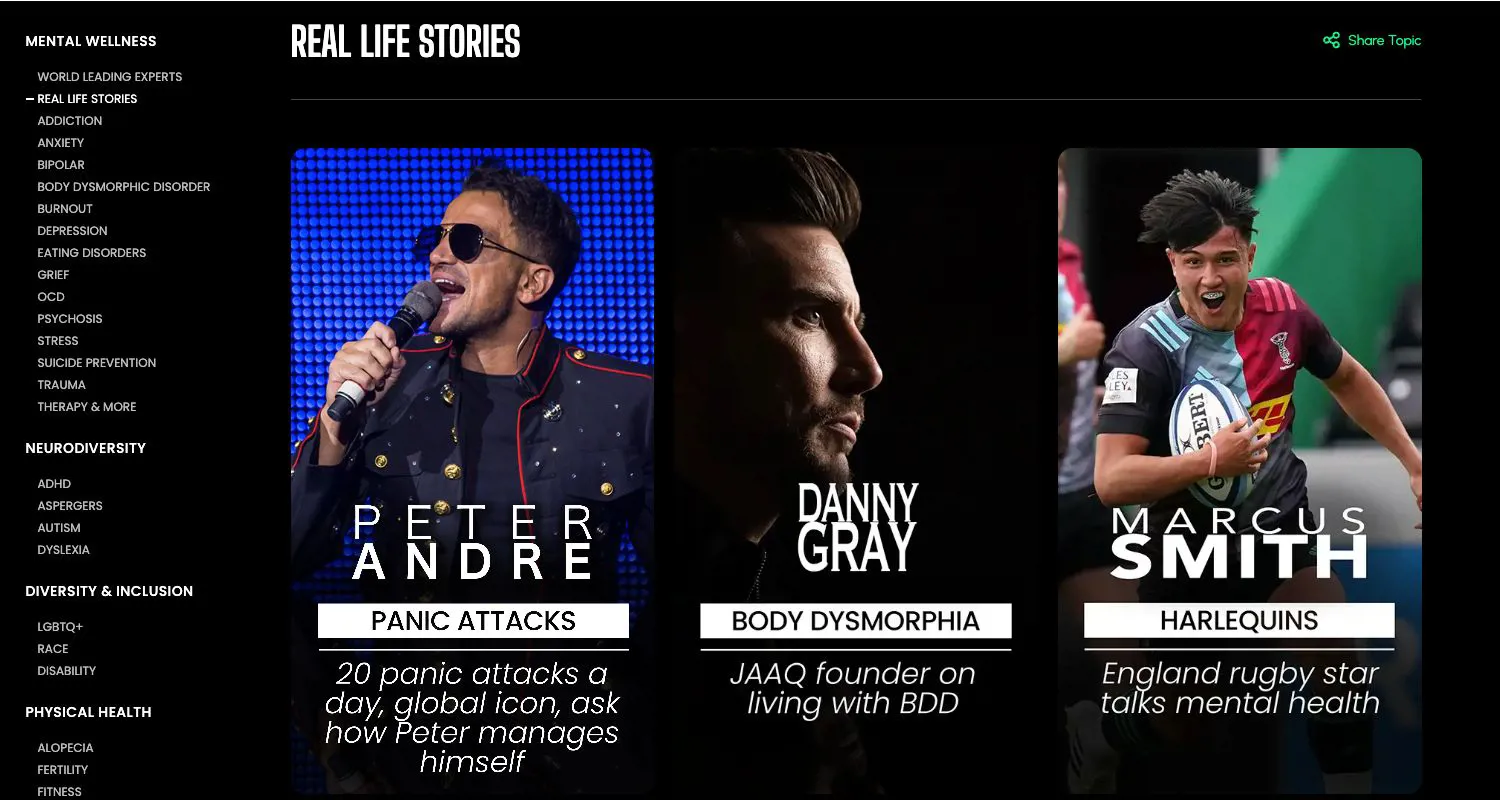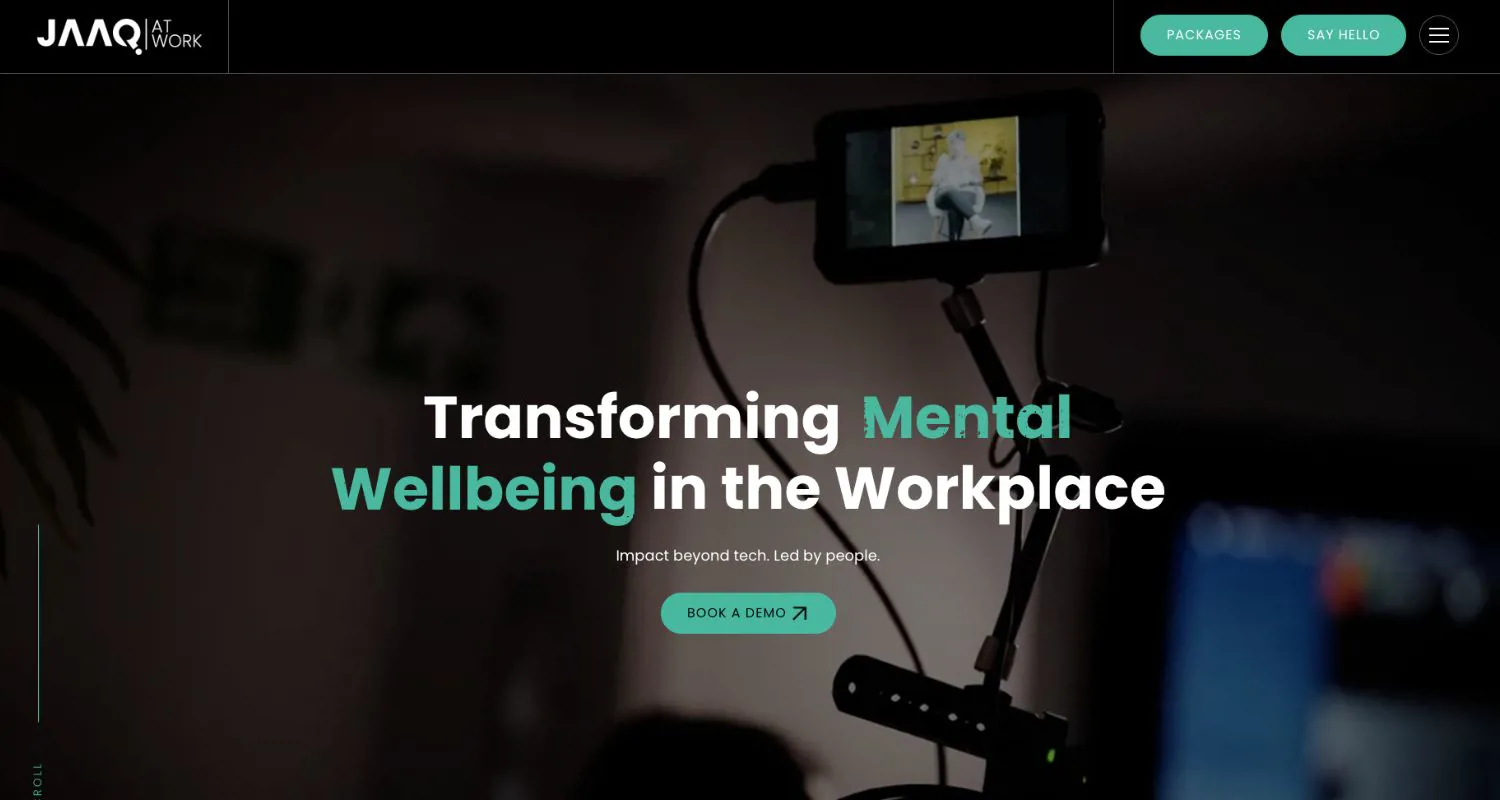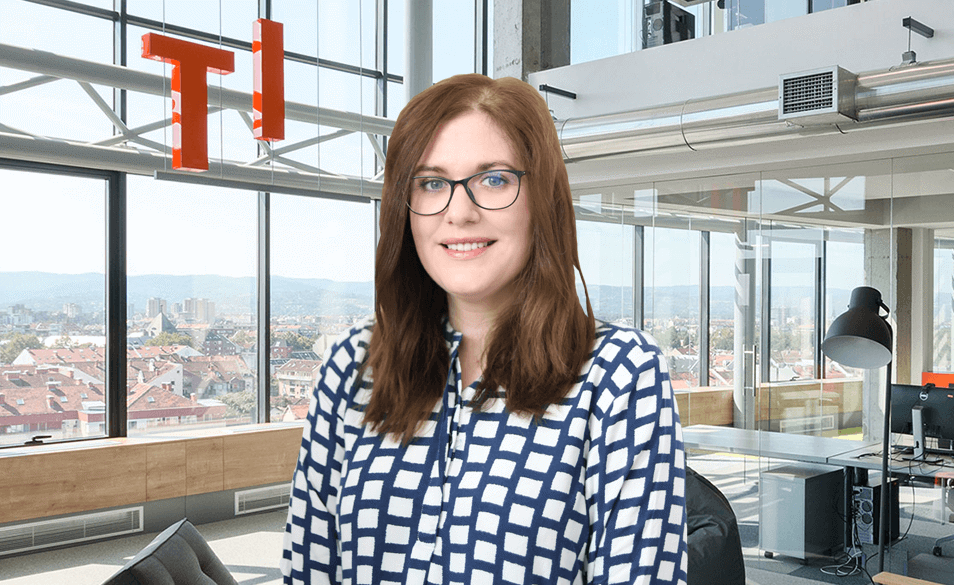Analyzing the state of mental health with JAAQ’s founder Danny Gray
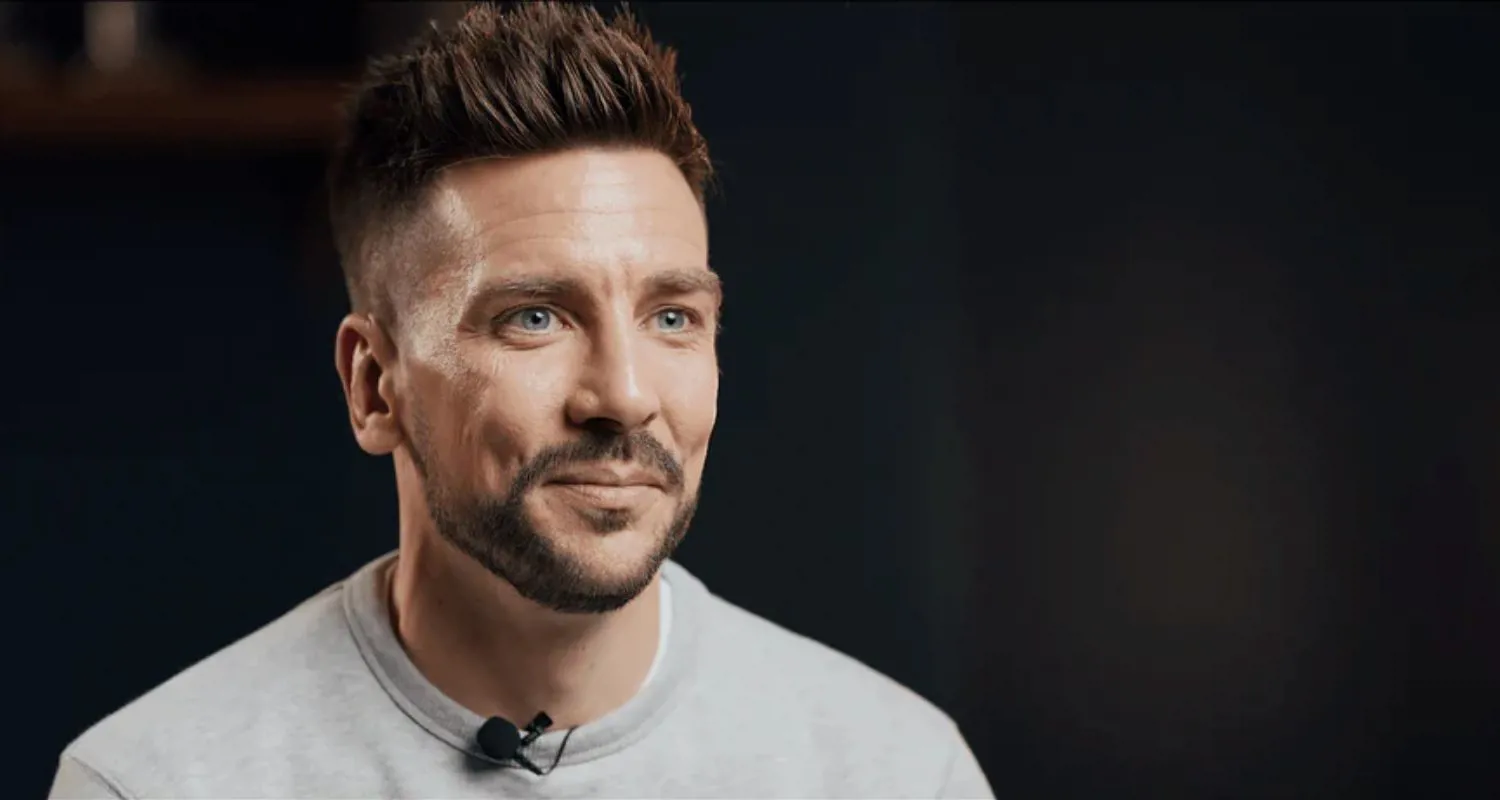
JAAQ (Just Ask A Question) is an innovative platform that is changing the game for mental health by offering Masterclass-style video content that mimics real conversations. People can access free mental health information from proven experts and hear real-life stories from real people who are going through mental health problems.
Less than two years after the platform launch, we talked to Danny Gray, JAAQ’s founder, about the current state of mental health.
Danny, we see that the “business as usual” approach for mental health simply will not be enough in the near future. What do you think needs to happen, both for the industry and JAAQ?
We continue to see that a lot of people who hear the words “mental health” immediately associate them with someone being ill or unwell, and that is definitely not the case.
Just like physical health, mental health is equally important. Think about this: we don’t go to the gym or play sports because we are ill or because we broke an arm - we do those things to be healthy and improve the quality of our lives. We need to achieve the same level of awareness when it comes to understanding the significance of mental health and how even the small things like going to bed at certain times, having healthy routines, or having hobbies can help people stay mentally fit. For these reasons, I would say that we are still at the beginning of our journey and that we have a long way to go.
In order to get where we want to be, which is to improve the overall mental health of people, we need to start from the very beginning—and that is to educate people about mental health.
According to statistics, about one in eight people in the world live with a mental disorder. How difficult is it for people to get access to the right mental health advice?
Mental health is critically important for everyone, everywhere. Besides the global statistics, we also see that in the UK, one in four people will suffer from a mental health illness at some stage in their lifetime. So, it’s not hard to realize that almost everyone on the planet is affected by mental health illness in some way, either as someone who is suffering from it or as someone who is supporting their loved ones.
It’s essential to understand that many people who need help wait until the last moment to seek professional help. At that stage, the person is in crisis, and getting in front of a doctor through the NHS (The National Health Service) in the UK is tough.
Here is one real scenario: a person realizes they are not feeling well. They first go to their local GP with symptoms, then are referred to the NHS to speak with an expert face-to-face. The wait time for the appointment can be up to 36 weeks! This is an extremely long time for someone who needs immediate help.
On the other hand, the majority of the population is not in a mental health crisis, and it’s unnecessary to see a doctor. They might see something happening to them and want to understand what they are dealing with, whether other people are experiencing the same things, and what they can do to feel better about themselves. For example, I suffer from body dysmorphia, and I want to get the correct information about it.
Now, we are getting to the format of the information they seek. In most cases, valuable materials are available in text form, which is quite archaic in today’s world, as people choose to access information via social platforms like Instagram or TikTok.
People now want to digest visual content, and that’s why the biggest search engine in the world for mental health issues is not Google. It’s actually TikTok. However, a whopping 84% of information given on TikTok around mental health is misleading, and it can be quite dangerous.
We at JAAQ realized that getting the correct information is easy, but it’s not delivered to the people in the right format. So, we created a platform with the right information and the right format.
So far, JAAQ has delivered more than one million answers in less than two years, equal to 2.5 million watched minutes with no marketing. I am incredibly proud that people share our content organically, which means they find it helpful.
Congratulations on reaching these fantastic results! Can you tell us what topics people are watching the most?
JAAQ doesn’t take anyone’s data, so we don’t have any information on the gender and age of people watching our content. However, we notice that some of the most searched topics are the ones around anxiety, depression, and addiction, which can mean that people are affected by these illnesses the most.
Another thing that we see is that around 60% of viewed content is real-life stories, compared to videos of doctors. This confirms that people like to hear real-life stories from people who are like them and have gone through something similar. So, while people want to learn the facts from doctors, they also want to relate to someone – after all, it’s the best therapy. Take, for example, Alcoholics Anonymous. Generally, AA programs are not driven by doctors but by people who talk to each other to understand that you are not alone.
Hope is one of the leading ways of therapy because people need to believe that there is hope.
That’s why JAAQ will be driven more by real-life stories in the future. However, we will continue to have experts discussing every topic, and we are fortunate to have some of the world's leading experts on the platform. These experts are challenging to get in front of, and by capturing them on video, people can access their expertise from anywhere in the world for free through JAAQ.
Technology is on a journey to revolutionize mental health services. Where do you see AI in this modernization, and how ethical is it to use AI in healthcare?
Many people are scared of AI because of the clickbait titles we see online. AI is very powerful and needs to be used to revolutionize mental healthcare and mental health in general. However, that doesn’t mean that we should use it lightly.
We need to be careful where AI pulls information from. For example, if you go to ChatGPT and ask, “What is depression?” You will get an answer, but the question is, where does it pull its data from? Is it a credible source? Is it the correct information? These things need to be addressed because they can potentially cause significant harm to people relying on reading that information.
At JAAQ, we want to use AI to pull information from all the leading experts in the world and offer meaningful content, which we are currently working on. Also, we want to use predictive analytics based on users’ previous questions to offer similar content from which they can benefit. For example, if someone is researching depression, they will also see some answers about the importance of sleep, as it can be linked to depression. That’s why we see AI as a powerful tool if it is used right and with the correct data.
According to studies, in 2010, poor mental health was estimated to cost the world economy approximately $2.5 trillion per year in poor health and reduced productivity. The projected cost will rise to $6 trillion by 2030. How do you see the role of mental health providers in this chain?
The numbers we are talking about are astronomical! Mental health, like physical health, affects everyone, and that’s what we see here. It’s simple: if you have teams with poor mental health, they won’t be able to perform their best, and their productivity will be affected.
Mental health is one of the biggest costs for businesses in the UK, and companies shouldn’t neglect the well-being of their employees. Instead, they must take the initiative and make positive changes to improve their employees' well-being. The ripple effect will be huge–people will be healthier, happier, and more productive, and companies will spend less money later on.
We see that businesses want to have helpful well-being programs for their employees, but they don’t know how to promote the importance of mental health. Often, companies only focus on people in severe crises and how they can help people overcome the challenges they are going through. But how are they taking care of the 90% of the workforce that is not at the point they need therapy? Here is where solutions like JAAQ can be a massive platform that gives people the correct information on mental health issues.
You recently partnered with Bupa UK to increase access to personalized, expert-led health advice that is available online. What do these partnerships mean to you and JAAQ?
Bupa is the largest healthcare insurer in Europe, and we partner with them through JAAQ at Work, our commercial offering for businesses. These partnerships are crucial to our business, and we are proud to be the first startup of our age to have this opportunity to work with Bupa. This shows us that we are on the right track.
Regarding our commercial offering, we follow the same principles: we don’t collect personal information so that people can freely search through a bespoke platform and discover content and conversations. Everything on JAAQ at work is based on the workplace, and you can find topics such as maternity, burnout, inclusivity, and others.
Employers only find out what topics people are interested in, which helps them shape their well-being strategies to be more effective.
How do you see the relationship between startups, tech companies, and big corporations?
I would compare these relationships with oil tankers and speedboats.
On one side, we have large corporate organizations (oil tankers) that people trust. However, with many processes in place, they often need more time to adapt to technology and offer innovations.
On the other hand, you have young and agile startups or scaleups like JAAQ that can move quickly like speed boats and deliver innovations fast. That’s why it’s essential that big organizations continue partnering with new tech startups and benefit from their disruptor mindset and agile approach.
Here, we also have companies like Vega IT.
Partnership with Vega IT has been critical for our success, as your expertise gave us the possibility to scale JAAQ. If we had to do it all by ourselves, without your domain expertise in healthcare and your knowledge of digital products and development, we wouldn’t be able to be where we are today.
So, like Bupa and JAAQ, JAAQ and Vega IT’s relationship is the same, and it all works hand in hand.
Thank you Danny, it’s a pleasure seeing you build JAAQ from scratch! We can’t wait to see what the future holds for us.



